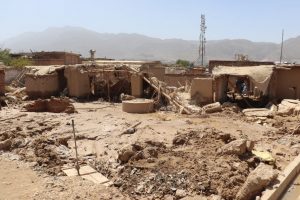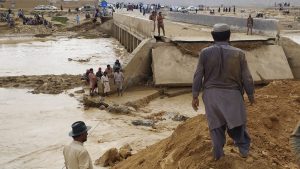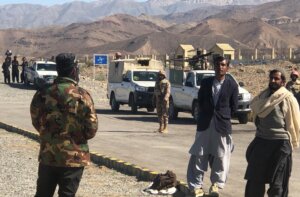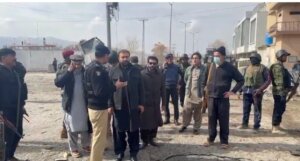Syed Muhammad Qaseem:
According to Climate Change Performance Index (CCPI), Pakistan is the 5th most vulnerable country to climate change. Pakistan will face a $26 billion annual loss. The greenhouse gas emissions of Pakistan are 0.7% which is nearly negligible. Greenhouse gases are resulting in the increase in temperature of the planet earth.
Pakistan received heavy rainfall in this monsoon. The rainfall was followed by extreme flash floods in many parts of the country. The 3 provinces Khyber Pakhtun khwa(KPK), Sindh, and Balochistan particularly received heavy rainfall and floods. Till now most damages are recorded in the Balochistan province.
Balochistan is the most vulnerable to climate change:
Balochistan is the most vulnerable province of Pakistan to climate change. Many times this province has faced different types of natural disasters due to climate change. Drought is the major threat to Balochistan as Barkan the district of Balochistan faced a prolonged drought of 22 months from 1999 to 2002, and Quetta experienced severe droughts in 2000, 2004, and 2008. During this monsoon season, Balochistan faced extreme floods in almost every part of the province.

The floods swept away dams and destroyed the buildings, houses, roads, and bridges in Balochistan, KPK, and Sindh. The communication links were destroyed by the merciless waves of the flash floods. This resulted in the breakdown of physical communication between the provinces. The provinces faced food shortages, as all of the roads were broken and the bridges collapsed. Train service was also suspended due to the collapse of a bridge in Bolan, a district of Balochistan. Punjab is also facing smog and heatwave as a result of climate change. Sometimes the density of smog becomes such high as the transportation system remains suspended even for days.
Balochistan totally paralyzed due to floods:
The flood waves destroyed the infrastructure in Balochistan. The primary source of income for Balochistan’s 85 percent population is agricultural. Floods destroyed crops on large scale, and people faced economic issues. Life in the province was totally paralyzed as it faced a prolonged Sui gas suspension, no electricity, a shortage of food items, and no mobile network. The government announced 7 days holiday for all educational institutions in the province, due to the continuous floods.

The floods claimed many precious human lives. Most of them were children, women, and aged men. The provincial government and Federal government seemed very weak to cope with the situation. Balochistan’s government called for the Pakistan Military to be stationed in the different flood-affected areas of the province in order to handle the unwanted incidents.
The National Disaster Management Authority(NDMA) and Provincial Disaster Management Authority(PDMA) need to make disaster management plans to handle such situations. It should highly train its employees so that human lives can be saved.
Dams must be built on emergency bases to prevent floods and store water for drought-like situations. The dam construction work should be strictly supervised to increase the construction quality of the dams. The provincial government must ensure zero encroachment in the waterways.
Pakistan as a developing country needs the cooperation of the International community:
Pakistan’s economy is mainly based on agriculture and climate change is adversely affecting its crops. Climate change is having an impact on the seasonal conditions of Pakistan in which summers will get longer and winters will be shorter. Pakistan is economically weak and it is difficult for the country to fight climate change. As a developing country, it has limited resources and poverty is spread all over the country. The average daily income of more than half of the population is around 2 dollars.

The highest emitters of greenhouse gases are developed countries. Interestingly only 10 countries emit 68 percent of the greenhouse gases. Pakistan being a signatory of the Paris agreement on climate change and being the least emitter of greenhouse gas needs the cooperation of the international community to help it to fight against climate change.
The author is a student of Software Engineering at the Balochistan University of Information Technology Engineering and Management Sciences (BUITEMS). He frequently writes about looming threat of climate change and global warming in Balochistan and Pakistan
He can be reached at khanqaseem34@gmail.com







Durg culture in Quetta